Borneo Tree Spirits Go to Court
Posted on 03. Mar, 2024 by Paul Sochaczewski in Articles, Environment
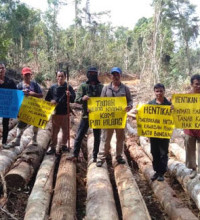
KUALA LUMPUR, Malaysia
“Your honor, I call our ethno-witnesses.” At a signal from Andrew Ajang Mering twelve men and women stood, hesitatingly.
The chief justice, a bemused ethnic-Indian Malaysian named Samuel Aithihyamala, stared over his half-glasses at the plaintiff’s lawyer, Andrew Ajang Mering, then at the large group of men and women who had just risen. “Just how many witnesses do you have, Mister Mering?”
“One for each of the large old-growth trees in the Penan homeland,” Andrew Mering answered. “We’re not sure of the precise number, but probably in the region of six thousand.”
“You’re planning to call approximately six thousand witnesses?”
“No, your honor. That might challenge the patience of the court. I’ll keep the number down to a dozen.”
Read MoreTo Cut That Tree, Cut Through Me
Posted on 16. Feb, 2024 by Paul Sochaczewski in Articles, Environment
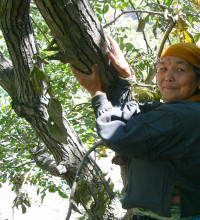
Any new-age nature-lover can hug a tree, and many do. But it takes a special kind of person to embrace a tree that is about to be chopped down and to dare the woodsman: “If you want to cut the tree, you’ll have to cut through me.”
The Chipko movement in north India was founded on this kind of challenge.
I met Srimati Bali Devi Rana, a leader of this unstructured movement, at her 210-person village of Reiny, about an hour north of the Indian hill station of Joshimath, in the north Indian state of Uttarakhand.
Sitting on the roof of her two story-house, with hay drying at our feet and tall peaks just a few kilometers away, she welcomed me with glasses of cold, clear water, tea and homemade nibbles made of corn flakes, peanuts, and masala. Srimati, an animated woman wearing an orange woolen head scarf and homespun jacket and shirt, ran me through the historical origins of the movement.
Read MoreThe Great Plastic Straw Diversion
Posted on 14. Feb, 2024 by Paul Sochaczewski in Articles, Environment
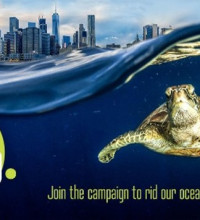
Starting in 2018, in the Unted States, anti-plastic campaigners encouraged people to make their voices heard to stop companies from using disposable plastic straws. One estimate was that as many as 8.34 billion plastic straws pollute the world’s beaches. That sounds like an enormous amount, but of the eight million tons of plastic that flows into the ocean each year, plastic straws comprise just 0.025 percent, a drop in the ocean, as it were.
The eco-sipping campaign was wildly successful. The city of Seattle banned plastic straws. Starbucks, McDonald’s, and dozens of other companies phased out plastic straws and stirrers.
What can we learn from these plastic-related initiatives?
Read MoreIs nature conservation a form of Green Colonialism?
Posted on 29. Jan, 2021 by Paul Sochaczewski in Environment, Environment EarthLove
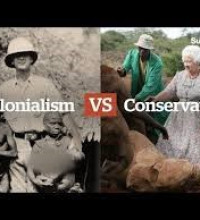
Is nature conservation a form of Green Colonialism? In a world rich in uncertainties and conflicting values, surely nature conservation is a universally accepted, politically correct goal that people worldwide agree on? Well, not really. Nature conservation is regularly accused of being a neo-colonial escapade. It’s called “green colonialism.” A 2018 article in Foreign Policy […]
Read MoreECOCIDE – Should killing nature be an international crime?
Posted on 29. Jan, 2021 by Paul Sochaczewski in Environment, Environment EarthLove

Ecocide – Should Killing Nature be an International Crime? Should killing nature be an international crime? A recent BBC article notes: “From the Pope to Greta Thunberg, there are growing calls for the crime of “ecocide” to be recognised in international criminal law. But could such a law ever work?” Courts in numerous jurisdictions have […]
Read MoreUS VS THEM: Why tribal people and nature get screwed by Asian governments and business leaders
Posted on 17. Oct, 2020 by Paul Sochaczewski in Environment, Environment EarthLove
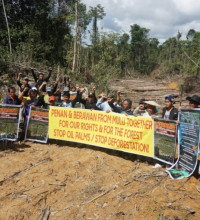
This short article is inspired by EarthLove. The book is fiction, the issues are real. US vs THEM Why tribal people and nature get screwed by Asian governments and business leaders In Borneo, paternalistic governments and avaricious businesspeople devalue rural folks and the environments on which they rely. Such arrogance often leads to environmental destruction, […]
Read MoreUNCONDITIONAL LOVE: Why people adore orangutans
Posted on 17. Oct, 2020 by Paul Sochaczewski in Environment, Environment EarthLove

This short article is inspired by EarthLove. The book is fiction, the issues are real. UNCONDITIONAL LOVE Why people adore orangutans One underlying theme of my new satiric novel EarthLove is the affinity people have with orangutans. I’ve never met anyone who has worked with orangutans who hadn’t developed a close emotional bond with the […]
Read MoreDON’T SCOLD ME, I’M JUST ENJOYING AN ICE CREAM: How Western consumerism fuels rainforest destruction and kills orangutans
Posted on 17. Oct, 2020 by Paul Sochaczewski in Environment, Environment EarthLove
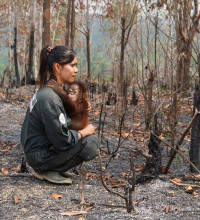
This short article is inspired by EarthLove. The book is fiction, the issues are real. DON’T SCOLD ME, I’M JUST ENJOYING AN ICE CREAM How Western consumerism fuels rainforest destruction and kills orangutans Enjoying that ice cream? With every delicious lick you’re killing orangutans. Rarely has a conservation problem been stated in such stark and […]
Read MoreNANYANG GARDENS: How the Chinese won the war of the South China Sea without a shot being fired
Posted on 17. Oct, 2020 by Paul Sochaczewski in Environment, Environment EarthLove
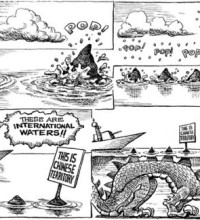
This short article is inspired by EarthLove. The book is fiction, the issues are real. NANYANG GARDENS How the Chinese won the war of the South China Sea without a shot being fired The fictional creation of Nanyang Gardens in my new novel EarthLove is a satiric extrapolation of a hard fact. China has taken […]
Read MoreBRUNO MANSER: Swiss “Robin Hood” back from the dead
Posted on 17. Oct, 2020 by Paul Sochaczewski in Environment, Environment EarthLove

This short article is inspired by EarthLove. The book is fiction, the issues are real. BRUNO MANSER Swiss “Robin Hood” back from the dead Bruno Manser is a minor character in EarthLove, but his real-life story is the stuff of legend. He disappeared in the Borneo rainforest in May 2000 and has been declared dead. […]
Read MoreNeed/Fear Relationship with Nature
Posted on 05. Apr, 2017 by Paul Sochaczewski in Environment
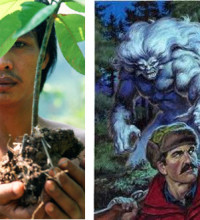
WHY DO WE LOVE AND NEED NATURE YET TREAT NATURE SO BADLY? Our yin/yang relationship with the natural world is ancient and deep, and understanding the connection could be key in conservation efforts. SARAWAK, Malaysia I’ve written numerous articles and books about the plight of the Penan tribe in Sarawak — human rights abuses […]
Read More“Trust Us. We Know Better Than You Do”
Posted on 19. Jul, 2011 by Paul Sochaczewski in Environment

“TRUST US, WE KNOW BETTER THAN YOU DO” Brown-brown arrogance is the new standard LOIKAW, Burma Bishop Sotero Phamo argues that “the only way for our rural people to join modern society is through education.” Speaking enthusiastically in his diocese headquarters, which houses what is certainly the best school in the region, Bishop Sotero adds […]
Read MoreBruno and the Blowpipes
Posted on 25. Jun, 2010 by Paul Sochaczewski in Articles, Environment

Who will determine the future of Sarawak’s isolated Penan? BAREO, Sarawak, Malaysia Bruno Manser has disappeared in Borneo and is feared dead. Manser, 47, was last seen in May 2000 in the isolated village of Bareo in the Malaysian state of Sarawak, close to the border with Indonesia. The Swiss had illegally entered Sarawak to […]
Read MoreGod’s Own Pharmacies
Posted on 25. Jun, 2010 by Paul Sochaczewski in Articles, Environment

Asia’s sacred groves survive because they provide spiritual and practical benefits; with thanks to a flying monkey god KERALA, India Who has the answers to conservation conundrums? Goverments with their laws, or local people with their traditions? As a conservationist I have spent years encouraging governments to establish protected areas through legislation. Unfortunately, many modern […]
Read MoreWatch What You Say in Burma’s Sacred Forests
Posted on 25. Jun, 2010 by Paul Sochaczewski in Articles, Environment

What’s a more powerful conservation incentive – a government jail or a spiritual punishment? ZEE O THIT HLA, Myanmar Myint Naing has one of the easier jobs in the Myanmar forestry department. Since 1999 his task has been to protect the Zee-O Thit-Hla sacred forest, which has been a government forest reserve since 1988. No […]
Read More